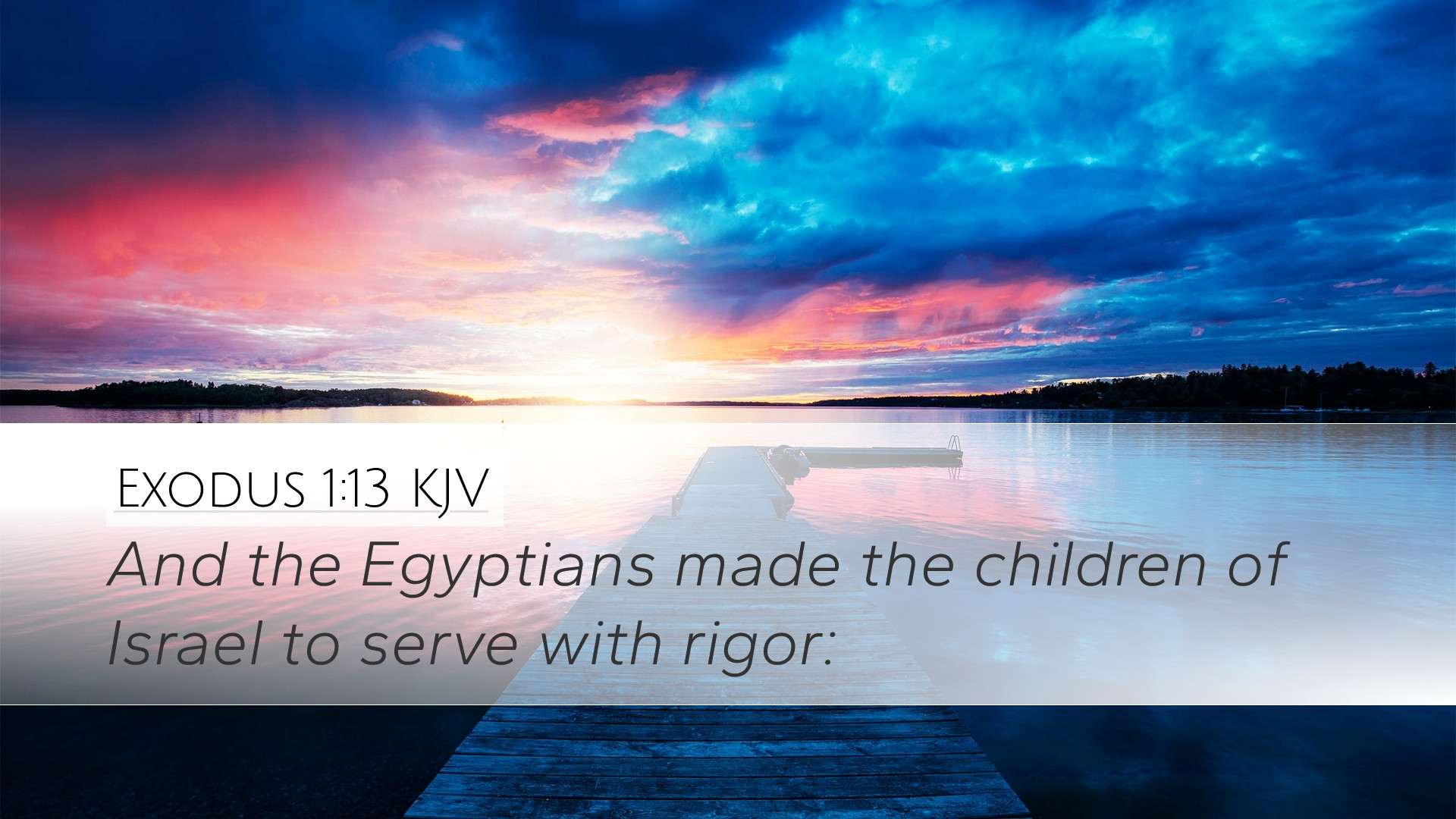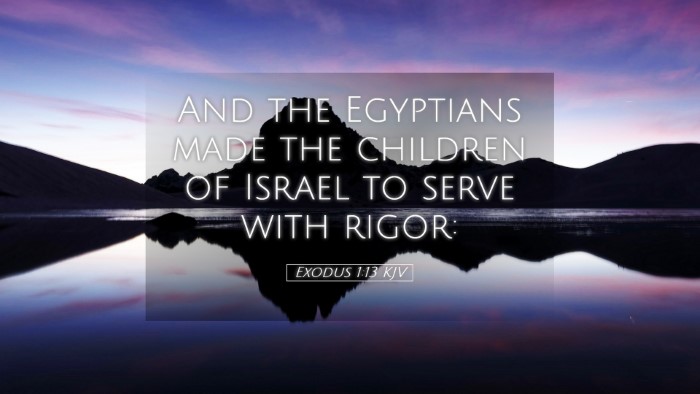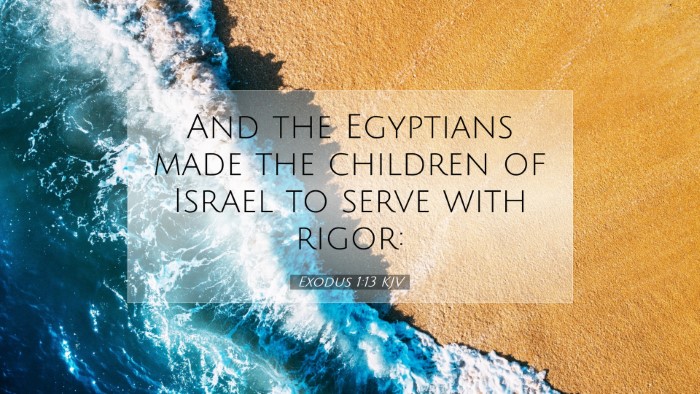Commentary on Exodus 1:13
Verse: Exodus 1:13 - "And the Egyptians made the children of Israel to serve with rigor."
Introduction
Exodus 1:13 serves as a pivotal verse that highlights the oppression faced by the Israelites in Egypt. This commentary draws on the insights of renowned public domain commentators including Matthew Henry, Albert Barnes, and Adam Clarke. Our goal is to explore the profound implications of this verse for pastors, students, theologians, and Bible scholars.
Historical Context
The backdrop of Exodus describes the Israelites' transition from a favored group to a subdued nation. Initially welcomed in Egypt during Joseph's time, their status deteriorated over the years, leading to rigorous servitude under a new Pharaoh who did not remember Joseph. This socio-political shift is crucial for understanding this verse.
Oppression of the People
Matthew Henry notes that the Egyptians' treatment of the Israelites exemplified the tyrannies that nations might impose on foreigners or marginalized populations. This historical account underlines a recurring theme in the scriptures—God’s people often face suffering and persecution.
The Nature of Their Bondage
Albert Barnes elucidates the term "serve with rigor," indicating a severe and harsh treatment that was not merely physical but emotional and psychological as well. The labor imposed upon the Israelites was brutal, signifying their loss of liberty and dignity.
Theological Implications
This verse is rich in theological significance:
-
The Nature of Evil:
As Adam Clarke remarks, the treatment of the Israelites serves as an example of human wickedness and the penchant for oppression. It illustrates how power can corrupt, leading the oppressor to dehumanize those they seek to control.
-
God's Sovereignty:
The deadlock of oppression sets the stage for God's intervention. Throughout history, even in the darkest times, God's sovereign plan unfolds, leading to redemption and liberation.
-
The Call for Justice:
This verse invites theologians and scholars to consider their response to social injustices. It urges church leaders to advocate for those who are oppressed, drawing parallels between the Israelites' plight and contemporary issues of inequality.
Lessons for Today
Exodus 1:13 presents valuable lessons applicable in contemporary ministry and scholarship:
-
The Role of the Church:
Pastors are called to be a voice for the marginalized, reflecting God's heart for justice and compassion in their communities. Henry asserts that silence in the face of oppression contradicts the essence of Christ's teachings.
-
Perseverance in Trials:
Believers should draw strength from the Israelites' endurance in trials. Clarke emphasizes that God’s people often undergo testing before they see His deliverance, a theme echoed throughout scripture.
-
Community Resilience:
The shared struggle of the Israelites serves as a testament to the power of communal faith. Scholars are encouraged to explore how such collective experiences shape identity and resilience among God's people.
Concluding Thoughts
Exodus 1:13 not only narrates the historical enslavement of the Israelites but also poses timeless questions about power, justice, and divine providence. For pastors, students, and theologians, it underscores the call to engage actively with social issues while maintaining faith in God’s ultimate plan for deliverance. As we reflect on this verse, may we seek to embody the core principles of justice, mercy, and hope that characterize the biblical narrative.


